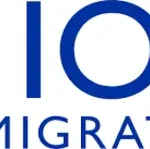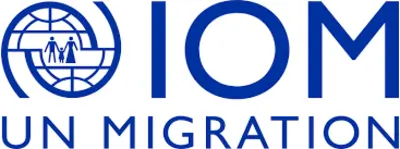
International Organization for Migration
A. BACKGROUND:
Established in 1951, the International Organization for Migration (IOM) is a related organization of the United Nations (UN), and as the leading UN agency in the field of migration, works closely with governmental, intergovernmental, and non-governmental partners. IOM is dedicated to promoting humane and orderly migration for the benefit of all.
In 2017-2023, IOM implemented a number of projects in the area of Migration, Business and Human Rights (MBHR), particularly the Corporate Responsibility in Eliminating Slavery and Trafficking (CREST), funded by the Government of Sweden, CREST Fashion funded by Laudes Foundation, and other related projects funded by institutional donors and private sector partners. These projects aimed to realize the potential of business to uphold the human and labour rights of migrant workers in their operations and supply chains in Asia.
Building on the results, partnerships and resources of IOM’s projects in the area of MBHR, IOM has developed a new Theory of Change and is launching a Migration, Business and Human Rights (MBHR) Programme in Asia which aims to promote full respect for the human and labour rights of migrant workers, especially women and migrants in situations of vulnerability within supply chains in Asia. It will focus on key regional labour migration corridors in Asia, encompassing both countries of destination and origin, including Cambodia, Indonesia, Malaysia, Nepal, the Philippines, Thailand and Viet Nam. IOM further implements a comprehensive regional component in this Programme, involving Asia as a region, through collaboration with relevant regional bodies and fora, such as, the Association of Southeast Asian Nations (ASEAN), regional consultative processes, national governments as well as partnerships with civil society and labour unions, migrant networks and private sector entities and associations, amongst others.
IOM prioritizes key sectors and supply chains that employ large numbers of migrant workers where migrant workers are at heightened risks of exploitation and with potential for meaningful stakeholder engagement.
The programme will help advance the implementation of the “Protect, Respect and Remedy” framework of the United National Guiding Principles on Business and Human Rights (UNGPs) and as well as the Global Compact for Safe, Orderly, and Regular Migration (GCM). Highlighting the responsibility of the private sector in addressing the human and labour rights risks experienced by migrant workers in supply chains, MBHR Asia will directly apply the three main concepts of the UNGPs: human rights due diligence, meaningful stakeholder engagement and addressing harm.
IOM’s Private Sector Engagement Strategy 2023–2027 assists IOM to enhance engagement with private sector to foster change in corporate values and practices; enhance protection of migrants’ rights; generate innovative technical partnerships that capitalize upon business expertise and capabilities and grow flexible funding that can support programme implementation and impact globally and advance implementation of the GCM.
In the implementation of the MBHR Asia programme, IOM seeks to develop a private sector engagement strategy to advance its impact partnerships while contributing into strengthened labour migration governance. It will be aligned with the global strategy and the learnings and recommendations of the final external evaluation of the CREST and CREST Fashion programmes, and will be guided by the following considerations:
- IOM’s approach for private sector engagement and partnerships is impact-driven in line with the Theory of Change.
- Sustain and scale engagement with Multinational Enterprises (MNEs) to enhance transparency in supply chains, develop strategies to identify and address risks, leverage supply chain relationships, build knowledge on migration, support impact assessments and public reporting, and promote sectoral and multi-stakeholder collaboration.
- Engage (new) sectors with high risk to migrant workers’ human and labour rights.
- Promote more collective action across industry-level, leveraging existing relationship with business groups that have ongoing human and labour rights initiatives, such as the Responsible Business Alliance, the Consumer Goods Forum, the Sustainable Hospitability Alliance, the Fair Labour Association, the Leadership Group for Responsible Recruitment, amfori, AIM Progress, Chambers of Commerce, among others.
- Strengthen support to local SMEs, micro-enterprises, and local business associations (e.g. employer associations, recruiter association, industry-wide initiatives), including carrying out migrant-centred human rights due diligence, helping strengthen policies and management systems, providing practical training and tools and policy dialogue, supporting multi-stakeholder initiatives and public-private partnerships among others. This directly responds to the needs of SMEs highlighted by the UN Working Group on Business and Human Rights in their Roadmap for the Next Decade of Action of Business and Human Rights.
- Support labour recruiters in raising awareness about ethical recruitment practices, providing practical training and tools to support them improve management systems in compliance with applicable national laws and international standards, such as the IRIS Standard.
- Deepen engagement with investors to create a better understanding of challenges and opportunities related to international labour migration and the protection of migrant workers. Investors set the direction for a brand to follow international standards on ethical recruitment through their investment requirements. Allocating sufficient funds, applying their influence and giving direction to brand decisions on ethical recruitment are important responsibilities.
- Private sector foundations.
B. ORGANIZATIONAL DEPARTMENT / UNIT TO WHICH THE CONSULTANT IS CONTRIBUTING: IOM Migration, Business and Human Rights (MBHR) programme in Asia.
C. OBJECTIVES OF THE CONSULTANCY: Consultant/Service Provider will provide technical support to develop programmatic private sector strategy for IOM’s MBHR Asia.
D. DELIVERABLES AND TIMEFRAME:
The selected Consultant/Service Provider will be responsible for:
- Developing a private sector engagement strategy for the MBHR Asia programme to contribute to the MBHR Asia monitoring framework. The strategy will be aligned with the MBHR programme’s commitment to creating impact for migrant workers in line with the Theory of Change (TOC) as well as the UNGPs. It will include the above considerations and will include:
- A brief analysis of ecosystem of MBHR in Asia based on the review of existing literature;
- Targeted outreach and engagement in light of above considerations;
- Types of engagement and partnerships, including unique value proposition and MBHR Asia offering to business;
- Hindering factors, challenges and recommendations for outreach and communications.
- Providing an online capacity-building session to IOM staff in applying the private sector strategy when implementing MBHR Asia programme activities.
Deliverables will include:
- 5-year programmatic MBHR Asia private sector engagement strategy (15 pages maximum), aligned with IOM’s Private Sector Engagement Strategy 2023–2027, and informed by the recommendations of final external evaluation of the CREST and CREST Fashion programmes, MBHR Asia Theory of Change, as well as recommendations for IOM’s private sector engagement.
- An online capacity-building to IOM staff on implementing the strategy in the context of migration, business and human rights, including a slide deck.
Budget: IOM expects the Consultant/Service Provider to submit an all-inclusive fee for the services with a detailed breakdown of costs and total number of working days per deliverable.
Time schedule: The assignment is expected to commence on 7 March, with the final deliverables expected by 31 May 2024. The timeline of the deliverables will be agreed with the selected Consultant/Service Provider.
E. EDUCATION, EXPERIENCE AND/OR SKILLS REQUIRED:
Education:
- Master’s degree in Business, Public Policy, Marketing, Social Sciences, Economics, Law, Human Rights or a related field from an accredited academic institution with at least five years of progressively responsible experience in private sector engagement, corporate social responsibility, labour rights, or networking-oriented work, or
- Bachelor’s degree in in the abovementioned field with seven years of relevant professional experience.
Experience:
- Professional experience working with private sector in the area of business and human rights, labour migration and protection of migrant workers;
- Demonstrated professional experience in the thematical area of business and human rights, labour exploitation, global supply-chains, trafficking in human beings, sustainable corporate governance, or remedy mechanisms will be an advantage;
- Experience in developing private sector engagement strategies and marketing or communications for private sector engagement;
- Authored publications and/or reports commissioned by the governments and/or international organizations on topics of business and human rights, relevant for this assignment.
Skills:
- Sound understanding of international and regional policies and processes on labour migration, protection of migrant workers, labour standards, business and human rights, anti-trafficking, sustainable corporate governance;
- Sound understanding of migration dynamics in the context of protecting migrant workers from labour exploitation;
- Sound understanding of strategies to engage the private sector; and marketing and communications for private sector partnerships;
- Excellent organization, research and writing skills; analytical and creative thinking;
- Excellent communication and liaison skills with a track record in coordination and building trust with diverse stakeholders.
Language Requirements:
- Written and spoken proficiency in English is required for this assignment.
F. COMPETENCIES:
Values:
- Inclusion and respect for diversity: respects and promotes individual and cultural differences; encourages diversity and inclusion wherever possible.
- Integrity and transparency: maintains high ethical standards and acts in a manner consistent with organizational principles/rules and standards of conduct.
- Professionalism: demonstrates ability to work in a composed, competent and committed manner and exercises careful judgment in meeting day-to-day challenges.
Core Competencies – Behavioral Indicators:
- Teamwork: develops and promotes effective collaboration within and across units to achieve shared goals and optimize results.
- Delivering results: produces and delivers quality results in a service-oriented and timely manner; is action-oriented and committed to achieving agreed outcomes.
- Managing and sharing knowledge: continuously seeks to learn, share knowledge and innovate.
- Accountability: takes ownership for achieving the Organization’s priorities and assumes responsibility for own action and delegated work.
- Communication: encourages and contributes to clear and open communication; explains complex matters in an informative, inspiring and motivational way.
How to apply
Interested Consultants/Service Providers are requested to submit the following:
- Cover letter expressing interest and outlining relevant experience.
- Curriculum vitae detailing qualifications, experience, and references.
- Comprehensive portfolio with at least three (3) samples/links or examples of previously developed and implemented privates sector engagement strategies, including analysis, reports, as well as training materials.
- Proposed work plan and timeline for the consultancy.
- Financial proposal including detailed breakdown of fees per deliverable.
Consultant/Service Provider should submit their applications via email, addressed as “Consultant/Service Provider for IOM’s MBHR Asia private sector strategy”, with the reference code Cvs 2024/005, via email to the following address: [email protected]. All submissions with a complete set of documents should reach IOM no later than midnight (Indochina time) on 29 February 2023. Late applications will not be accepted. Any questions regarding the call for applications should be sent to the following address: [email protected].
Applications will be evaluated based on the qualifications and experience of the candidates. Only short-listed candidates will be contacted for further evaluation through interviews or other appropriate assessment methods.
Posting Period: 8 – 29 February 2024 (extended).
Deadline: 29 Feb 2024

